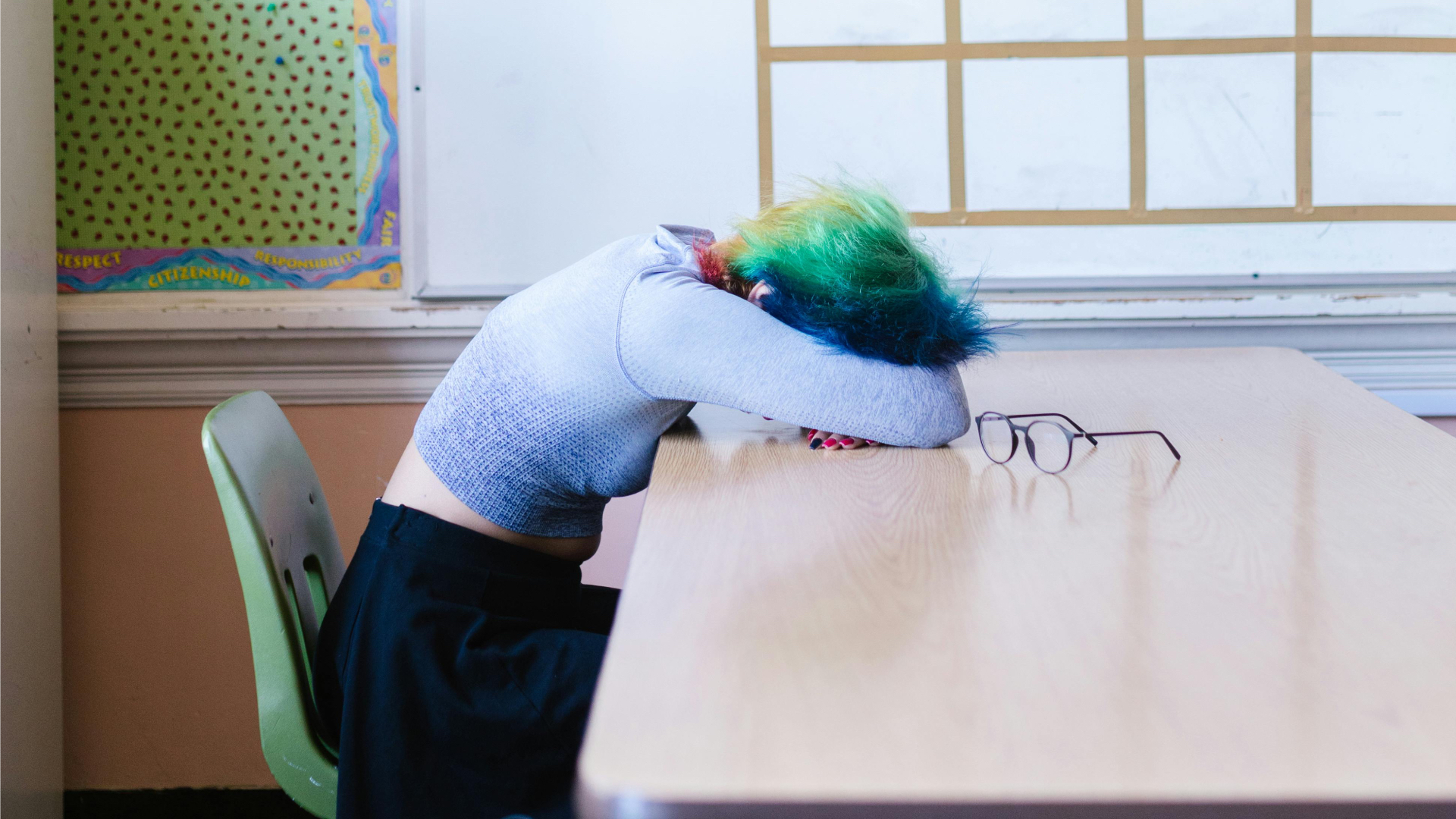Relationships, Sex and Health Education update says trans identity is up for ‘significant debate’ (EXCLUSIVE)
"There’s no debate: when someone tells us who they are, we believe them," advocate Cheryl Green tells Attitude
By Aaron Sugg

The UK government has published its updated Relationships, Sex and Health Education (RSHE) guidance this week (15 July), outlining how schools should approach teaching topics related to LGBTQ+ identities.
The new statutory guidance, released by the Department for Education in June 2025, will come into effect from September 2026 and has already raised concern among LGBTQ+ advocates for the limited and cautious framing of trans content.
The update issues schools to be “mindful” that gender identity is the subject of “significant debate” and are instructed not to teach that “all people have a gender identity” as fact.
Cheryl Greene, senior director of Welcoming Schools, a programme of the Human Rights Campaign that equips educators to create safe, inclusive environments for LGBTQ+ students, spoke exclusively to Attitude about her concerns the update guidance could have on trans youth.
“There’s no debate: when someone tells us who they are, we believe them” – Cheryl Greene
“Every young person deserves to be seen, valued, and treated with dignity in the classroom. But this guidance sends a message that transgender and non-binary young people are not welcome – and tries to rob all students of the ability to bring their full selves to school,” she said.
“There’s no debate: when someone tells us who they are, we believe them. Our classrooms should be safe, welcoming places of learning, free from political agendas that diminish their worth.”
The guidance arrives during a time of increasing political uncertainty for LGBTQ+ youth on a global scale. In the US yesterday (17 July), national concern has been raised following the sudden closure of the Trevor Project’s crisis hotline for LGBTQ+ youth.
In the UK, a recent Supreme Court ruling defined ‘sex’ under the Equality Act as ‘biological sex’ having a downward domino effect on trans rights and bathroom accessibility.
In a deeply sobering study conducted by Just Like Us [PDF] in 2021 they uncovered 65% of trans young people worry about their mental health daily, though highlighting schools that have positive messaging about being LGBTQ+ pupils’ wellbeing and safety is improved.
According to Stonewall’s 2017 School Report, nearly half of LGBTQ+ pupils (45%) – 64% of whome were trans pupils – reported being bullied for being LGBTQ+ in Britain’s schools.
Trans+ Solidarity Alliance, which organised a record-breaking Trans+ mass lobby last month, are drawing comparisons between the 2025 RSHE update and Section 28 of 1988, which stated that schools “shall not promote homosexuality or publish material with the intention of promoting homosexuality.”
“Queer and trans youth will still be queer and trans without access to information about who they are” – Jude Guaitamacchi
Jude Guaitamacchi (they/them), founder of Trans+ Solidarity Alliance, said exclusively to Attitude: “I grew up under Section 28, which left me with a huge amount of shame to work through about my identity, and I’m worried this guidance is turning back the clock… this guidance could condemn another generation to the same shame and stigma.”
They concluded: “Queer and trans youth will still be queer and trans without access to information about who they are, they will just end up internalising shame and their wellbeing will suffer more while they figure it out alone.”
Key points from the new RSHE guidance:
LGBTQ+ content must be taught: Pupils must learn about all protected characteristics under the Equality Act, including sexual orientation and gender reassignment, by the end of secondary education.
Same-sex relationships encouraged in primary teaching: Primary schools are strongly encouraged to teach about same-sex parents when discussing families and healthy relationships.
LGBTQ+ content must be integrated at secondary level. Schools should fully integrate LGBTQ+ content into broader RSHE teaching (not isolate it into standalone lessons).
Trans identities framed as “debate”: Schools are told to be “mindful” that gender identity is the subject of “significant debate” and are instructed not to teach that “all people have a gender identity” as fact.
Distinction between sex and gender reassignment: Pupils must be taught the legal distinctions between rights based on biological sex and those protected under gender reassignment.
Restrictions on teaching materials: Schools are advised against using external resources (e.g., cartoons or simplified diagrams) that may encourage children to question their gender or that perpetuate stereotypes.
Parental consultation required: All external materials must be made available to parents on request, and schools are expected to consult parents before introducing them.
The guidance calls for respectful discussion of differing views, while warning against promoting social transition as a solution for distress (involving encouraging changing names, pronouns, appearances, and social interactions to align with one’s gender identity).
